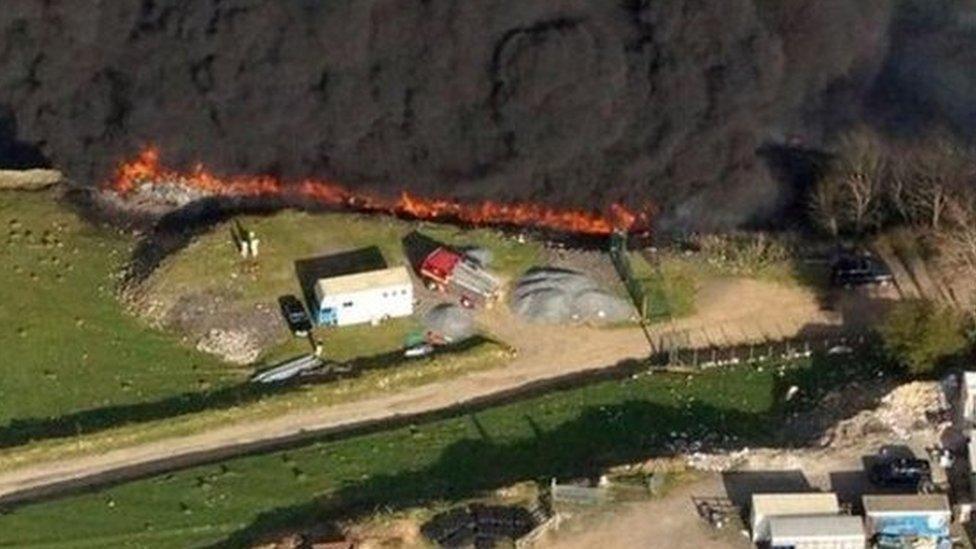Number of grass fires 'dramatically reduced' in Wales
- Published

Fire chiefs worked with landowners and farmers as well as young people
The number of deliberately-set grass fires in Wales has dramatically reduced since 2015, fire services have said.
Figures showed a 41% reduction in 2016 compared to "unacceptable" numbers in 2015 - including a 75% reduction in April 2016 compared to April 2015.
But there was a slight increase of 6% in April 2017 compared with the previous year.
A machine to reduce the risk by cutting bracken is being trialled by Welsh fire services on Wednesday.
In real terms, the 2017 increase amounted to about 70 more recorded incidents in April 2017 than April 2016, but the Wales Arson Reduction Board said the period was much dryer this year.
There were 940 - or 44% - fewer fires in 2017 compared to 2015.
The board said engaging with young people had been key to reducing numbers, and it also worked with landowners and farmers to try to reduce the number of illegal controlled burns or ones which accidentally got out of hand.
The task force said it was determined to continue in its efforts over the summer months - and asked people to be mindful of the dangers of small fires spreading and causing damage to land, wildlife and property.
People are asked to be mindful of lighting and discarding barbecues and smoking materials
Mick Crennell, chair of the Wales Strategic Arson Reduction Board, said: "This type of incident can sometimes seem like a bit of fun to young people, but we've worked hard to highlight the potential risks.
"We recognise the value of encouraging our communities to work with us to share responsibility and encourage a cultural shift across Wales so that arson is seen as socially unacceptable by all."
Following the work with landowners and farmers, a machine which reduces the risk of upland wildfires by cutting bracken is being trialled by fire services in Powys.
Increasing masses of bracken negatively affect agriculture, rural water supplies and are a "major contributory factor" to triggering wildfires, fire services said.
It will be tested by the All Wales Joint Arson Group at Twmpath, near Builth Wells.
Mydrian Harries of Mid and West Wales Fire and Rescue Service said: "Being able to utilise the equipment to cut fire breaks in the bracken would enable landowners to reduce the amount of dry hillside vegetation and ultimately reduce the risk of wildfires on their land".
- Published17 February 2017
- Published23 April 2015
- Published3 January 2016
- Published13 February 2017